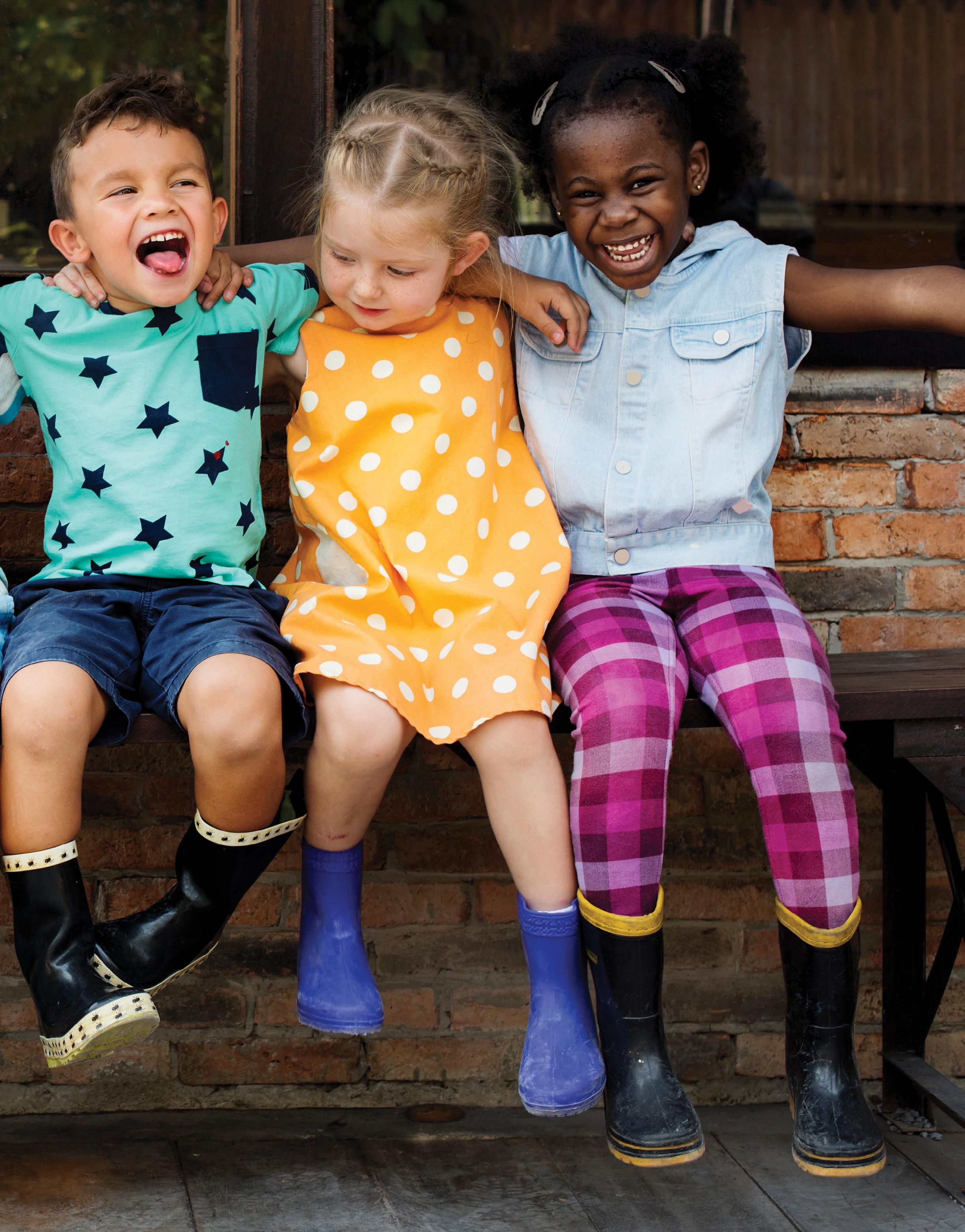
3 minute read
HAPPY CAMPERS – Tips to help children with their first camp experience
After months of quarantine, your kids are probably excited to get outside and enjoy being with peers at summer camp. While you’re also ready for a bit of freedom, you may be worried to send your little camper to unfamiliar territory. Help prepare kids with these tips to make his first camp experience a positive one.
The Basics • Have children memorize their full name, address and a parent’s phone number before camp begins. • Many day camps require closed-toe shoes and may need kids to get shoes on and off quickly. Practice tying shoelaces; if your little one hasn’t mastered this skill before camp starts, consider a pair of Velcro shoes.
Do trial runs until he masters getting shoes on and off in a timely manner.
Practice makes perfect! • Children should be able to zip their own pants and sweatshirts (or wear pull-ons so they are self-sufficient).

Teach them to tie a sweatshirt around their waist. • Apply sunscreen before leaving for camp; children who attend full-day camp should know how and when to reapply.
Practice Active Listening and Assertive Communication • Be sure your child listens to and follows directions. This year especially, camps will emphasize health and safety. Following directions is vital to keeping everyone safe while having fun. Practice active listening skills by asking kids to follow multi-step directions following sequential order. • Review camp rules together before camp starts to help manage expectations. Note that a child who pouts until he gets his way may not be ready for camp. • Practice simple, direct responses to communicate dissatisfaction if and when necessary. Such as, “I don’t like that. Don’t do it again.” If an annoying or inappropriate behavior continues from another child, ask a camp counselor for help.
• Practice speaking up in matters of safety, such as wearing a mask or social distancing. Act as a role model in public to show kids how. • Children should know how (and be willing) to ask for help when needed. If he has a special need, let camp staff know ahead of time.
Kids and staff can even agree on a signal to get a staff member’s attention. • Have kids practice asking for what they want (politely). Manners go a long way. You’ve taught your child “please” and “thank you”—be sure he says these important phrases without your cue.
Make Lunch Stress-Free • Packaging often poses a problem for little fingers. Practice opening wrappers and containers at home.
Don’t assume camp staff will have time to assist everyone at lunchtime. • Handwashing is sure to be emphasized, but it’s OK to ask camp staff if hand wipes, sanitizer or placemats are allowed in lunchboxes. Practice using these items with kids at home. • One in 13 children has a food allergy; it’s likely that someone at camp will, too. Swapping snacks sounds like fun, but it’s not safe as cross-contamination can pose a big problem for kids allergic to nuts or gluten. Teach children not to share food and to respect other people’s space by not touching their lunchbox and food. • Stop yourself the next time you start to clean up after your kids.
Teach children how to sort trash from recyclables, throw items in proper bins, and most importantly, not to expect adults to clean up after them. Part of being successful, happy campers is for kids to help out and do their part.
Social Skill Essentials For many first-time campers, enrolling with a buddy helps ease jitters. But it’s important to gain the confidence and skills to make new friends. Review and roleplay skills that show openness to making friends: Practice how to greet someone new. Make eye contact and smile. When someone says “hi”, teach children to reply, even if they feel shy. Not responding may be misconstrued that a child doesn’t want to be friends.
Teach children to take turns.
Discuss the idea that not everyone has to be friends—especially if your child is a people pleaser. Camp is a place to try new things and have fun doing so. Let kids know they’re expected to participate in all activities, and that it’s OK if they don’t do everything just right. Kids who follow directions and are willing to venture into “new territory” have an opportunity to learn many skills that build confidence and independence, while making new friends along the way.










